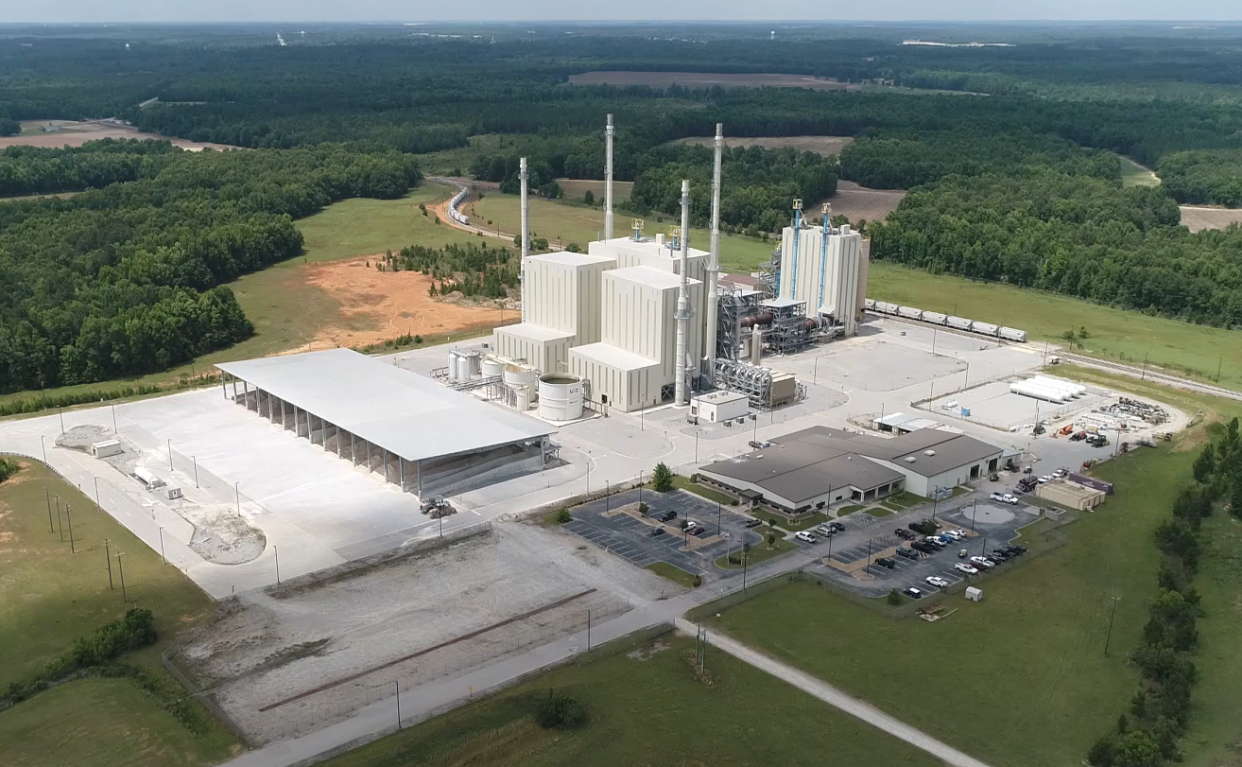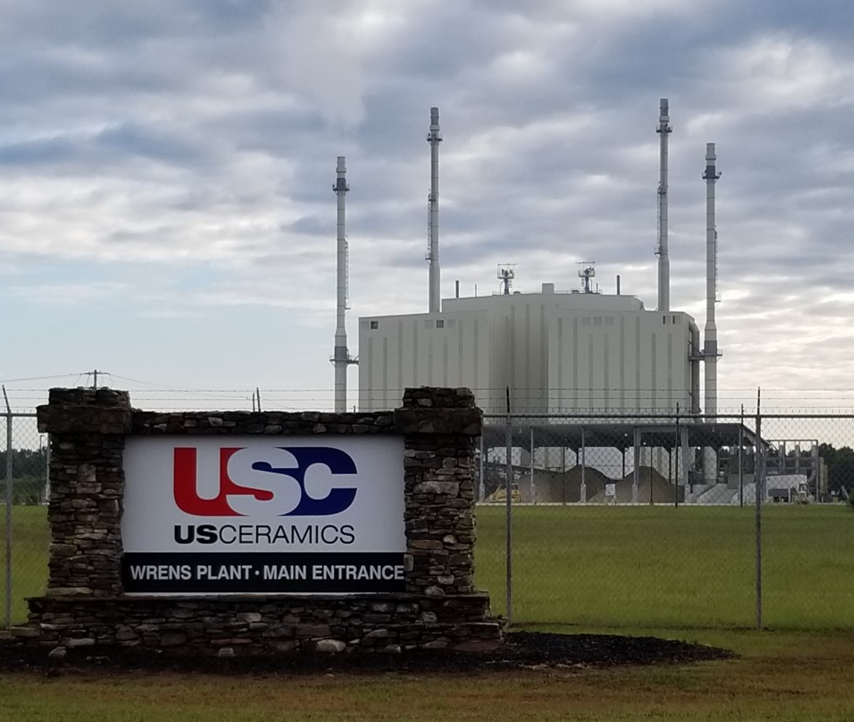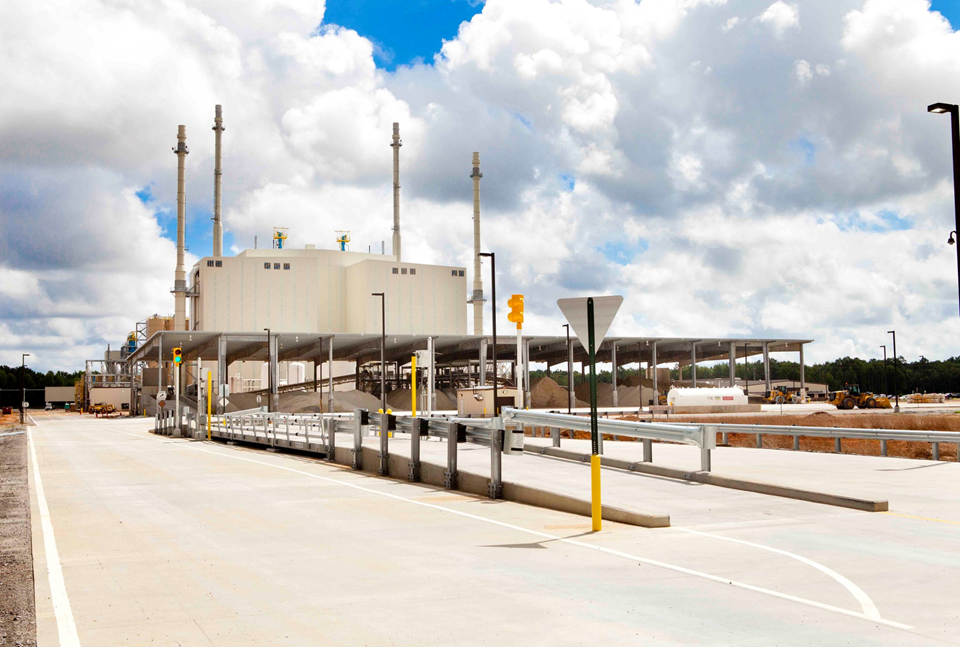New owner will help Wrens plant diversify its product line

For the first since the plummet in crude oil prices tanked the proppant market in 2015, US Ceramics (USC) is firing up its kilns, hiring a variety of new positions and hoping to get its second line operational by September.
The Wrens, Ga. plant, formerly known as PyraMax and more recently as Imerys, was recently purchased by First Bauxite LLC (FBX), an acquisition that will allow the plant to expand its product lines to include a full portfolio of proppants for sale on the domestic and international markets, as well as several new products that will make use of materials for the highest grade non-metallurgical bauxite reserve in Guyana.
“The acquisition will also permit USC to step into other market segments such as refractories, flame retardants and chemicals that can utilize the special characteristics of the low impurity FBX bauxite,” Thibault Van Stratum, Executive Chair of FBX, said.
FBX also purchased the Andersonville, Ga. kaolin processing facility that was shut down in 2015.
Mike Burgess, who will be moving into the CEO role at US Ceramics, was one of the founders of PyraMax Ceramics and was responsible for the design and build of the Wrens plant. He has been a part of the management team there since the beginning. He was there when it opened in 2013, when Imerys took over, and when sales dropped to nearly zero in 2015.
“We reduced staffing down to one line and sporadically ran that line through 2018,” Burgess said. “It was probably shut down more than it operated during that period.”
In 2019, Burgess and others offered a leveraged management buyout with Imerys remaining as a joint venture partner and US Ceramics was created. The plant, which has always focused on the production of lightweight ceramic proppant, tiny beads used in the oil and gas industry in non-traditional extraction of those resources, retooled the plant to focus on the international market.
Burgess said that while looking for a partner in this venture they found FBX, which plans to keep the US Ceramics name as a fully owned subsidiary as well as key personnel and employees.
“First Bauxite is changing the direction,” Burgess said.

Instead of being totally focused on the light weight proppant market, FBX’s access to high-grade bauxite will allow the Wrens and Andersonville plants to diversify.
“Many of the companies along the kaolin belt in Georgia are also buying bauxite,” Burgess said. “Georgia’s reserves of bauxite are a lower quality and doesn’t have the volume needed for many products. This provides US Ceramics with a source of high-quality bauxite that will now allow us to expand our proppant portfolio to intermediate, high strength and ultra-high strength proppant markets.”
The company has already begun bringing shiploads of bauxite into the Port of Savannah and utilizing local trucking companies to transport it.
“One of the things we do in Wrens, with our high-temperature centering kiln we’re able to calcine and make refractory-grade bauxite aggregate,” Burgess said. “That’s a new product line. We’ll still utilize our bead technology to make these little round beads for oil fields, but we’ll also make those out of bauxite for other industries, like the foundry industry and industrial grinding applications.”
With the Wrens and Andersonville plants utilizing different processing technologies, Burgess said that there is a variety of new product lines the company is exploring.
“The processing capabilities of the two plants will open the door for a replacement to Chinese-produced bauxite at a time when there are major issues with consistent supply from China,” said John Karson, FBX’s Vice President of Sales and Marketing. “Guyana was a leading producer of non-met bauxite until the mid-1980’s when lower quality, but especially lower priced Chinese bauxite, flooded the global market.”
FBX representatives have said that current market conditions have created voids in the supply of many raw materials and Chinese-based materials and goods are being impacted by supply chain issues and other electricity curtailments. It expects that the products planned for the Georgia plants will be the only domestically calcined bauxite on the market that is not produced by a Chinese-owned company.
“The real goal is to utilize their bauxite in combination with the local kaolin in combination with the technology in these two plants to make a diversified portfolio of different products for different industries,” Burgess said.
These products include flame retardants that are used in products like wall board and the carpet industry and materials used in refractory market and alumina industries as well as finished products like foundry beads that can replace sand in those processes. Other product applications include an aggregate used as a high friction surface treatment in highway safety programs.
Burgess said that FBX and USC have completed a 100-day integration process between the two companies and are in the process of restaffing the plant.
“We’ve already restarted one line in Wrens and we’ve made run of proppant and shut it back down. Now we’re in process of starting it up on bauxite,” Burgess said.
Hiring is pretty much across the board with positions needed at entry level as well as experienced production level, supervisor and managerial roles.
“We’ve added a professional in the accounting department and 10 production operators,” Burgess said. “We need another seven in that role right now. We are trying to hire production managers and maintenance managers. We have an open R&D scientist position in our lab.”
The Wrens plant will also serve as the company’s global research and development facility, Burgess said. They hope to have the second line up and running by September there.
The company has hired a manager of operations for the Andersonville plant and they plan to have it operational by the end of the year.
“We were probably in the low 40s (as far as employees go at the Wrens plant) going into this acquisition and we are trying to get to the 60 or 70 range in Wrens. We’ll probably need that amount at Andersonville as well.”
All of these positions should be posted on the US Ceramics website under the section for job opportunities and the company is also posting the positions on Indeed.
“From a company perspective we can’t do it all fast enough,” Burgess said. “All of the approvals have been made, it’s just the process of finding the right people and hiring them.
“We’re getting some great candidates out of the local area. It has always been a great place to work. One of the best decisions we ever made was locating the facility in Wrens and Jefferson County.”

This article originally appeared on Augusta Chronicle: New owner will help Wrens plant diversify its product line

